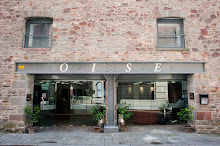The first computer was developed 1941 from Konrad Zuse, from this moment this machine is our best friend and employee. We use it now everywhere in our businesses, hospital, at home, an our phones, anywhere. But the pc makes our life not only easy but difficult also. Experts say that we use those to much and forgot to think with our own brain some times. Teachers success parents to does not let their children play all time with the PC's.
Yes I agree with the opinion that the computers are a big help and do a lot of our work and so I will show you the benefits of them. Computers has change our life we need only a few minutes to find every information we want. To listen to music, playing games, booking our tickets for the journey, but we use they not only to have fun but to work also. The police can solve crimes quickly and better, every businesses man use it for his company, the factory to work and the doctors to help us better and for a lot of operation.
But we must also talk about the disadvantages of computers, there is the threat of intelligence because we use the PC not only to find difficult things but realy easy too and so the brain gets lazy.
Also children play a lot of games with guns and faiths so some of them gets criminally or can not concentrade in the shool. The people do not talk with each other the are all time chatting with those phones or computers in social rooms and so the communication get lost. A lot of people lost his jobs because a machine does their work or the employee can not use the machine so their employer fire them.
But nobudy want to be without computers in the furure, everyone or the most of us have a PC at home an in a few years it will not chance. Perhaps in the next years all will be controled by the machine if it is at the work or our free time. In the U.S.A. alredy yet there is in the super markets machine where every customer hat his own ID and the machine knows what he buy and save the informations, or the customer can choose what he want to buy and the machine shows him where it is in the shop. That is only a very small example of that will be in the future.
No one can say if it is really useful or not because some times is the technology good and other times not, but we can not live without now. All the system will be disturb if we do not use any more. I think it is important to use the computers but our brain too.
Eleni Zafiri


 and hear how it should sound.
and hear how it should sound.
 it will tell you all the five verb forms: take, takes, took, taken, taking. If you check the adjective 'happy' it will give you 'happier' and 'happiest'. If you check the noun 'person' you will find the plural is 'people'.
it will tell you all the five verb forms: take, takes, took, taken, taking. If you check the adjective 'happy' it will give you 'happier' and 'happiest'. If you check the noun 'person' you will find the plural is 'people'.




